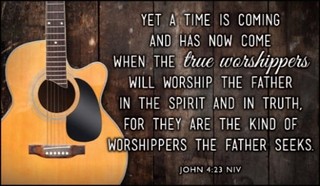- Recent Translations
- All Translations
Giovanni 4:12
Share
Settings
Giovanni 4:12 Meaning and Commentary
Art thou greater than our father Jacob
A person of greater worth and character than he, who was content to drink of this water; or wiser and more knowing than he, who could find out no better fountain of water in all these parts? she calls Jacob the father of them, according to the common notion and boasting of these people, when it served their turn; otherwise they were not the descendants of Jacob; for after the ten tribes were carried away captive by the king of Assyria, he placed in their room, in the cities of Samaria, men from Babylon, Cuthah Ava, Hamath, and Sepharvaim, Heathenish and idolatrous people; see ( 2 Kings 17:24 ) . And from these, the then Samaritans sprung; only upon Sanballat's building a temple on Mount Gerizzim, for Manasseh his son-in-law, when put away from the priesthood by the Jews, for his marriage of his daughter, several wicked persons of the like sort, came out of Judea, and joined themselves to the Samaritans: and such a mixed medley of people were they at this time, though they boasted of Jacob as their father, as this woman did; and so to this day, they draw their genealogy from Abraham, Isaac, and Jacob; and particularly call Joseph their father, and say, from whence are we, but from the tribe of Joseph the just, from Ephraim F23? as they formerly did F24;
``R. Meir saw a Samaritan, he said to him, from whence comest thou? (that is, from what family;) he answered, from the (tribe) of Joseph.''Which gave us the well;
Jacob gave it indeed to Joseph and his posterity, along with the parcel of ground in which it was; see ( John 4:5 ) ; but not to this mixed company:
and drank thereof himself and his children, and his cattle;
which shows both the goodness and plenty of the water: though our Lord had spoken of living water, this woman understood him of no other water, but spring water; called living water, from its motion, because it is continually springing up, bubbling, and ever running: so carnal persons, when they hear of spiritual things under earthly metaphors, think of nothing but carnal things; as Nicodemus, when Christ talked of being born again; and the Jews at Capernaum, when he discoursed concerning eating his flesh, and drinking his blood; for spiritual things are neither known nor received by the natural man.
F23 Epist. Samar. ad Scaliger. in Antiqu. Eccl. Oriental. p. 123, 124, 126.
F24 Bereshit Rabba, sect. 94. fol. 82. 1.

